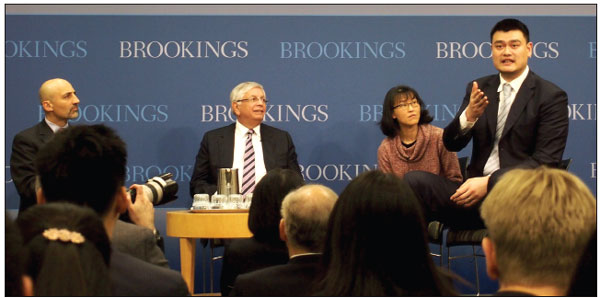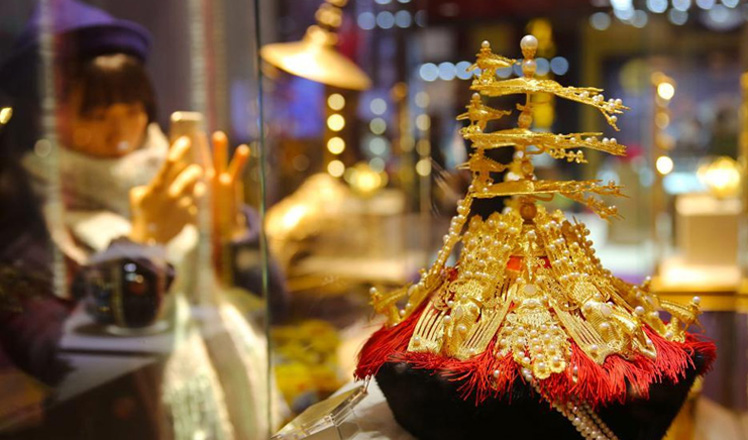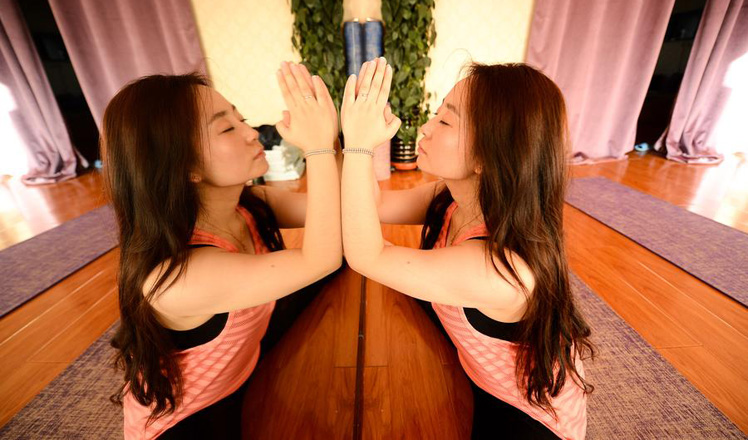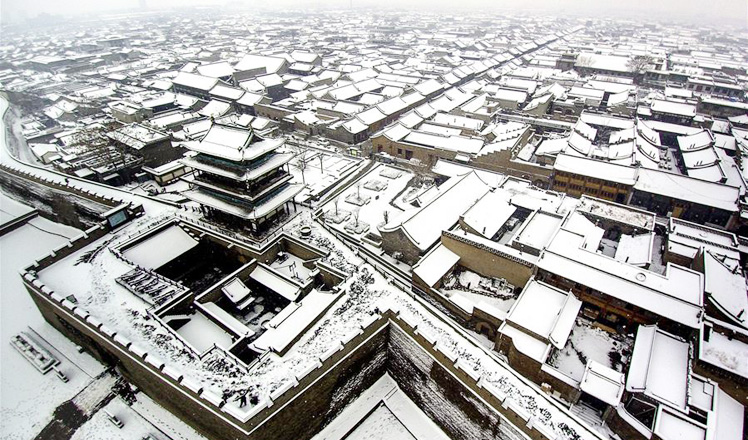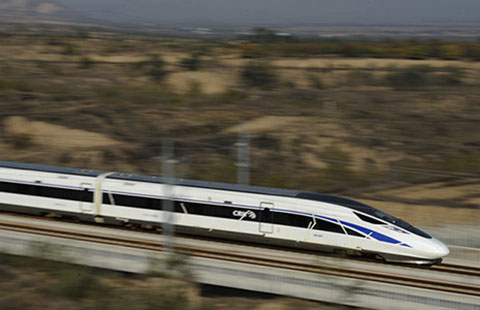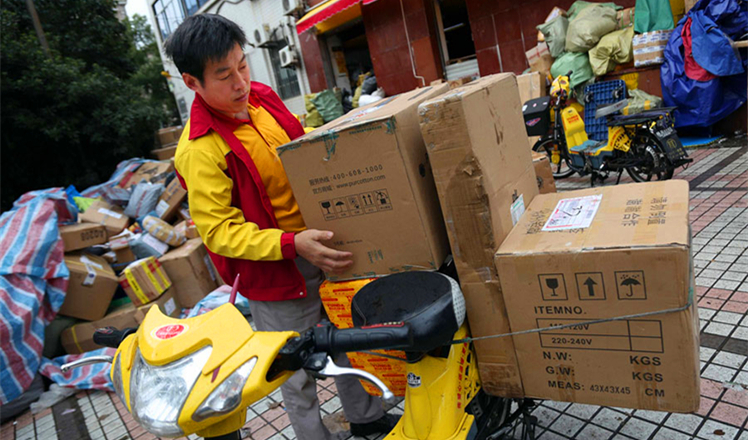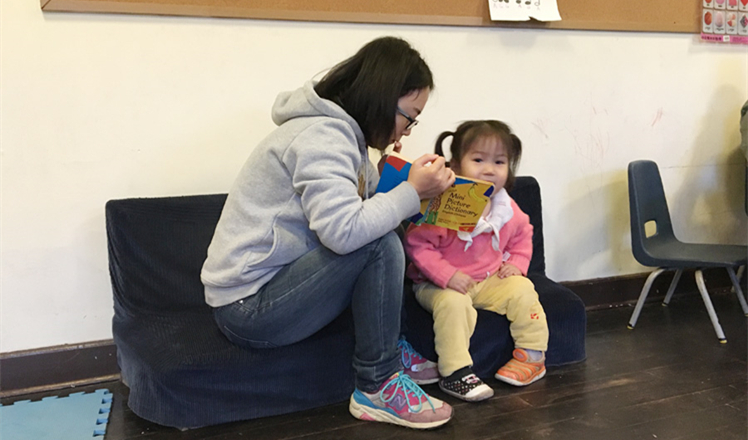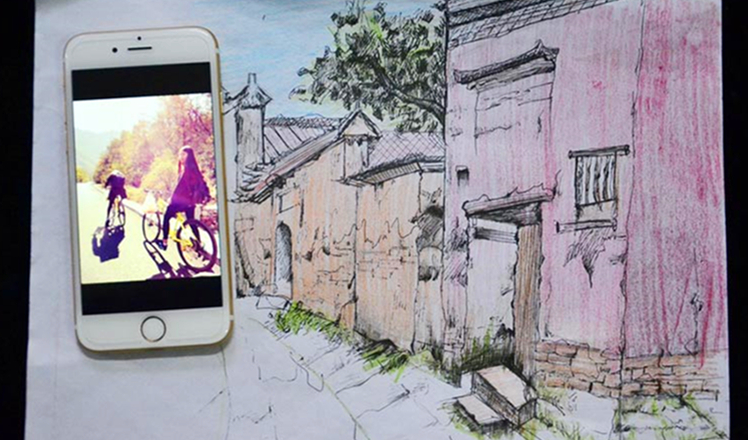Washington-based think tanks going Chinese
Updated: 2015-11-27 12:00
By Chen Weihua(China Daily)
|
|||||||||
|
Former NBA star Yao Ming talks about sports and cultural diplomacy at the Brookings Institution in Washington on March 28, 2014. From left, moderator William Antholis, a senior fellow at Brookings; David Stern, commissioner emeritus of the National Basketball Association, and Yao's interpreter. Chen Weihua / China Daily |
With China's fast rise, think tanks in nation's capital are expanding their related work on the country, Chen Weihua reports from Washington.
On Sept 22, the day Chinese President Xi Jinping landed in Seattle for his first state visit to the United States, one event in the Emerald City didn't really make any headlines.
The Brookings Institution, the top-ranked think tank in the US and worldwide, inaugurated its China Council in a ceremony held at the law offices of Dorsey and Whitney in the Columbia Center building, the tallest in Seattle.
The ceremony was followed by a public event at Seattle University, where some of Brookings' top China scholars, such as Jeffrey Bader, David Dollar and Cheng Li, joined Washington State's Democratic Congressman Rick Larsen, co-chair of the House US-China Working Group, and several others to explore the challenges and prospects of US-China relations.
Brookings setting up its China Council is an example of a new and expanded focus going on among the close to 400 think tanks in the nation's capital: China. Simply put, the world's second-largest economy is a hot topic among the think tanks, and on an average day they put on multiple events, ranging from discussions on China's economic slowdown and its actions on climate change to tensions in the South China Sea and the newly launched Asia Infrastructure Investment Bank.
Brookings' China Council is designed to provide financial and intellectual support for its John L. Thornton China Center in Washington and the Brookings-Tsinghua Center in Beijing, both set up in 2006. Its founding members include more than a dozen business and opinion leaders such as former US ambassador to China Jon Huntsman and Yahoo co-founder Jerry Yang. John Thornton, co-chair of the Brookings' board and Qiu Yong, president of Tsinghua University, serve as honorary co-chairs.
Martin Indyk, Brookings' executive vice-president and a two-time US ambassador to Israel, described the centers in Washington and Beijing as "two parallel operations that enhance each other" and a vision by Thornton.
Bench of scholars
While saying that the Thornton center has built a "deep bench of scholars" on China, Indyk acknowledged that resources at the Tsinghua center are limited.
Qi Ye, director of the Brookings-Tsinghua Center and an expert on China's low carbon policies, is now the only resident scholar while other Chinese and American scholars associated are all non-resident.
"We felt we really needed to build up the Brookings-Tsinghua Center as well, so this would be more like in parallel in terms of the capabilities," said Indyk, citing the growing policy issues that need to be tackled with China's rise.
"To do that, we decided that it makes sense to have a group of individuals, corporations, both American and Chinese, who would support the work of both centers, and who would see the value of independent research by a think tank, both for China and for United States," he said.
With the launch of the China Council, the Tsinghua center plans to add three more residential scholars over the next three years, recruit two post-doctoral fellows a year, establish a regular visiting scholar program, create a new academic advisory committee and expand office space. The Thornton center will expand by forging ties with Tsinghua, launch signature forums, recruit young rising stars, establish endowed chairs, name visiting scholarships and sponsor internships.
- Britain's Cameron says time to bomb militants in Syria
- Russia accept full suspension from athletics
- Turkish and Russian FMs to meet in Belgrade
- S.Korea, DPRK agree to hold vice ministers' meeting for improved ties
- Avoiding escalation over Russian warplane downing
- Rights panel presses US over scientists' cases
Most Viewed
Editor's Picks

|

|

|

|

|

|
Today's Top News
Chinese president arrives in Turkey for G20 summit
Islamic State claims responsibility for Paris attacks
Obama, Netanyahu at White House seek to mend US-Israel ties
China, not Canada, is top US trade partner
Tu first Chinese to win Nobel Prize in Medicine
Huntsman says Sino-US relationship needs common goals
Xi pledges $2 billion to help developing countries
Young people from US look forward to Xi's state visit: Survey
US Weekly

|

|
